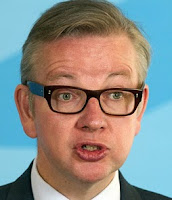The Times [£] in a leader: "This ruling is a victory not only for openDemocracy, which was taken to court by the Cabinet Office, but for all those who recognise the need for the government to be subjected to rigorous scrutiny. There are increasing concerns about the department’s policy of stonewalling requests from journalists and the public until being ordered to respond by the regulator. In doing so it has been accused of failing to meet its obligation in either the letter or the principle of the Freedom of Information Act. The result has been that successful requests have fallen to the lowest level since the law was introduced 20 years ago...the judgment is particularly shaming for Michael Gove, the relevant minister, who had sought to brush off investigations into the workings of the clearing house as 'ridiculous and tendentious'.”
Andrew Neil, interviewed by Susannah Butter in the Evening Standard, on the chances of Piers Morgan joining GB News: “It would be nice to have him. But he’s got his own idea of what he is worth and we have a slightly different idea of what he’s worth. He is in a lucky situation because ITV are continuing to pay him a tonne of money so he doesn’t have to do anything in the short run. I don’t think he’s going to go anywhere else in the UK. If he has a huge American offer that’s a different matter. No one in the UK can compete with that but if he’s going to do more UK news TV I hope it will be with us.”
Tom McTague in The Atlantic in a profile of Boris Johnson: "Johnson often carries a notepad around, a habit from his days as a journalist. A former aide told me that you know he has taken your point seriously if he writes it down. He runs meetings like an editor, surveying his staff for ideas, always looking for 'the line'—cutting through dry and occasionally contradictory facts to identify what he sees as the heart of the matter, the story."
“ 'What am i doing this for?' Johnson asked his aides, looking at his schedule for the day and seeing a slot carved out to talk to me. 'It’s for the profile I advised you not to do,' James Slack, Johnson’s then–director of communications, said."
Sathnam Sanghera in The Times [£]: "My heart sank on hearing that the print circulation of my hometown newspaper, the Express & Star, has dropped to around 20,000 a day. In the 1980s it was selling 350,000 every evening, the editor would send writers to Afghanistan, the Gulf War, Sarajevo, and, on my first day on the Financial Times, I did myself no favours whatsoever by pointing out to new colleagues that their paper sold less nationally than the local paper I’d started out on. It still operates a fine website, but the slow death in general of local newspapers is nothing less than a national tragedy."
Sathnam Sanghera in The Times [£]: "My heart sank on hearing that the print circulation of my hometown newspaper, the Express & Star, has dropped to around 20,000 a day. In the 1980s it was selling 350,000 every evening, the editor would send writers to Afghanistan, the Gulf War, Sarajevo, and, on my first day on the Financial Times, I did myself no favours whatsoever by pointing out to new colleagues that their paper sold less nationally than the local paper I’d started out on. It still operates a fine website, but the slow death in general of local newspapers is nothing less than a national tragedy."
Joshi Herrmann, publisher of digital newspaper Manchester Mill, on Press Gazette: “There is no long-term viable solution to the problems in local journalism that doesn’t come from getting people to pay for local news again.”
Hugo Rifkind in The Times [£]: "The Leveson Inquiry was shaming for newspapers, but they — we — still fought off the encroachment of government into who got to say what and how. It seems obvious to me that state regulation of social media is the same fight on a bigger battlefield. Yet traditional media distrusts social media too much to go into battle on its behalf."
Jason Rezaian in the Washington Post: "While the Trump era may be over, attacks on journalists in far-flung corners of the world are a frightening reminder that the former president’s record of inciting harm against reporters is an indelible part of his legacy — one that will have residual effects for generations if President Biden doesn’t act."
- Joel Simon, executive director of the Committee to Protect Journalists, quoted by the Washington Post: “If you look at the data we maintain, especially on journalists in prison around the world, there’s a consensus in the advocacy and research communities that press freedom is at a historic low point.”
[£]=paywall


























